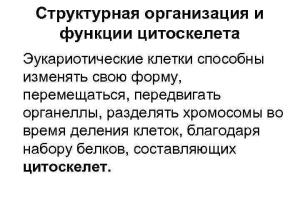House management
The Housing Code of Russia obliges citizens to pay for housing and public utilities. In this case, the executors of public services can be legal entities or individual entrepreneurs. They acquire resources, carry out work and are responsible for the serviceability of all intra-house communications.
The following have the right to use public services:
Owners of residential premises with their families;
Persons who received housing from a cooperative organization;
Tenants of premises; persons who have rented an apartment (room).
Public utilities:
Drinking cold water. The supply must be around the clock. Carried out via a central or intra-house network. The volume and quality of water must be at the appropriate level.
Hot water. Must be served around the clock through centralized networks for all areas of the house.
Drainage. Sewage disposal should also be carried out around the clock - through centralized networks and in-house systems. Sewage systems should be in most living areas of the house. If a residential premises does not have a centralized sewerage system, then it should not be taken into account in the list of utilities.
Electricity supply. Electricity in the required volume must also be supplied around the clock, without interruption. However, power outages are recorded on metering devices. Please note that resource supply organizations are not required to maintain networks inside the home. The consumer is obliged to provide the meter data before the date indicated on the receipt. If the data has not been received, then the RSO has the right to calculate the volume of consumption according to the standards if a system has not been installed in which the data from the metering devices is automatically sent to the organization’s control room.
You will have to pay for general house expenses even if you have not lived in the apartment for some time. The volume of general house services is calculated taking into account the space occupied by each. In the absence of a common house meter, the calculation is made according to the standards. Experts assure that it is very beneficial to have both common and entrance meters at the same time. They allow you to calculate the “left” connections to the general house electrical network. They also make it clear which entrances know how to save money and which ones don’t.
Gas supply. Gas must be supplied around the clock. Gas meters provide real savings and pay for themselves fairly quickly in apartments with a large number of residents.
Heating. Thermal energy should be supplied to houses, apartments and non-residential premises centrally. Residents were deducted from paying for common heating costs. There is no need to pay for heating an entrance where there are no radiators. In 2013, new changes were made that relate to the rules for the provision of utility services. Standard odds were introduced for those who are in no hurry to bet individual devices accounting. For such owners, increased standards have been introduced for all types of utilities. Every six months the payment increases. As a result, the excess will reach 60%.
Housing services:
Provision of residential premises for use under a social tenancy agreement or a rental agreement for residential premises of the state or municipal housing stock;
Removal of solid and liquid household waste from apartment buildings.
Housing and utility payments
For employers:
For the use of residential premises (rental fee);
For owners:
For the maintenance and repair of residential premises. Consists of fees for services and work for managing an apartment building. The owner of premises in an apartment building is obliged to bear the costs of maintaining not only the premises belonging to him, but also the common property in the house: house structures, corridors, stairwells, attics and basements, utility networks, elevators and garbage chutes, etc. Article 39 of the RF Housing Code. Moreover, the amount of the amount is determined by the residents themselves at a meeting of the owners of the apartment buildings. This is declared by parts 2 and 4 of Art. 158 Housing Code of the Russian Federation.
The management organization has the right to propose taking into account certain works and costs. Sometimes management companies offer a shortened list of services and work for the maintenance and current repairs of a house for a maximum cost, which is set annually by the local administration. “Missing” services are offered to be paid additionally. This shouldn't happen, of course. The list of house maintenance services and routine repair work is in Rosstroi Decree 170 of September 23, 2003.
Don't confuse maintenance fees with Maintenance COMMON PROPERTY of MKD owners, included in the payment, and paid work for minor repairs in your apartment, which are executed according to your order.
Extra lines
In payment bills, columns with antennas, cable television or Internet, radio, locking device, concierge, parking lot security, and so on periodically appear next to legitimate utilities and housing services. All these services are neither utilities nor housing. It is illegal to include them in a payment order. Such payments should be excluded from the single payment document. Do not allow the management company to include a vague clause in the management agreement about its right to conclude any other agreements. Otherwise, unnecessary services may be imposed on you. All additional decisions are made at the meeting.
Swedes resolve communal misunderstandings in the Housing Court, and Australians may not pay for water if the apartment does not have a meter installed
How does the housing system work? utilities in Europe and the USA, South Korea and Brazil, Australia and Turkey? About interesting distinctive features and conditions for consumers in different countries world is our material for today.
Brazil. In this country it is used different water, and it costs differently accordingly. For example, in some Brazilian prefectures where it operates centralized system water supply, water is supplied several times a week. It is pumped into underground reservoirs, and water consumption is monitored using metering devices.
Another type of water supply for Brazilians is artesian wells. Water from wells is used for washing and bathing, but it cannot be drunk, since in most houses the main sewage system is cesspools, waste from which seeps into groundwater. The price of Brazilian water depends on the cost of equipment for its delivery and the electricity that is spent on lifting and pumping water into tanks.
Gas is a scarce fuel in Brazil. It is supplied to consumers in standard cylinders. Brazilians also have to pay a lot for electricity - up to two dollars per kilowatt.
Consumers from South Korea can use two types of central heating - gas and electric. Gas heating it costs more, and the electric power is turned off during the day and is not used at all in the summer.
Türkiye. Many Turkish houses are equipped solar panels on the roofs. Behind hot water in Turkey they don’t pay, because it is heated by solar energy. Also, for Turkish consumers there is no concept of “rent”, instead of it there is “aidat” - the full cost of servicing a residential complex. “Aidat” is a fixed value, it does not depend on the number of residents. The amount of this fee is set by the residents of the house every year at a general meeting, after the manager provides a report on expenses.
In Australia, where fresh water is not enough, many consumers install a rainwater collection system in their homes. The water collected in this way is used for sanitation and garden watering. Payment for water in Australia includes the cost of access to the resource and connection to the sewerage system. Every month Australians pay $150–200 for this alone, and in addition, consumers are charged for cubic meters of water consumed during the month. But if you live in an apartment where water meters are not installed, you do not have to pay for the water consumed: according to Australian law, you cannot charge if there are no meters.
In Sweden, the Housing Court is successfully functioning, dealing with housing and communal problems.
In the UK, in addition to paying for utilities, consumers also pay a municipal tax, the amount of which depends on the prestige of the area. At the expense of municipal tax and, in part, state budgetary funds, the cities of Great Britain maintain a “purely English” comfort, maintain lawns and flower beds, remove garbage, repair roads, and also pay for the work of firefighters, police and city officials themselves. British people living in apartment buildings, are required to pay a special fee for home care. The owner of the house uses these funds to maintain the elevators, hall, corridors and local area.
USA. As soon as a new tenant moves in American house, he enters into an agreement for the supply of water, and then a technician from the supply company comes to him and installs the meter. Data from the meter is read automatically and sent to the company without the participation of the consumer. In America, there is virtually no risk of a property management company deceiving a consumer, as many lawsuits have been filed in the courts on similar issues in the past. Thrifty Americans go to court at the slightest suspicion of possible fraud.
Interestingly, in the United States, utility consumers practically do not pay in cash, preferring to use electronic cards. The payment amount is withdrawn from the card and transferred to trust accounts. Wherein Management Company can transfer to himself only the balance of money and only after his full settlement with all counterparties.
Swedes resolve utility misunderstandings in the Housing Court, and Australians may not pay for water if the apartment does not have a meter installed.
How does the housing and communal services system work in Europe and the USA, South Korea and Brazil, Australia and Turkey? Our material today is about interesting distinctive features and conditions for consumers in different countries of the world.
Brazil. In this country, different water is used, and it costs differently. For example, in some Brazilian prefectures, where a centralized water supply system operates, water is supplied several times a week. It is pumped into underground reservoirs, and water consumption is monitored using metering devices.
Another type of water supply for Brazilians is artesian wells. Water from wells is used for washing and bathing, but it cannot be drunk, since in most houses the main sewage system is cesspools, the waste from which seeps into groundwater. The price of Brazilian water depends on the cost of equipment for its delivery and the electricity that is spent on lifting and pumping water into tanks.
Gas is a scarce fuel in Brazil. It is supplied to consumers in standard cylinders and costs (so far) two to three times more than in Ukraine. Brazilians also have to pay dearly for electricity – up to $2 per 1 kilowatt.
South Korean consumers can use two types of central heating - gas and electric. Gas heating is more expensive, and electric heating is turned off during the day and is not used at all in the summer.
Türkiye. Many Turkish houses are equipped with solar panels on their roofs. There is no charge for hot water in Turkey, because it is heated by solar energy. Also, for Turkish consumers there is no concept of “rent”, instead of it there is “aidat” - the full cost of servicing a residential complex. “Aidat” is a fixed value, it does not depend on the number of residents. The amount of this fee is set by the residents of the house every year at a general meeting, after the manager provides a report on expenses.
In Australia, where fresh water is scarce, many consumers install a rainwater harvesting system in their homes. The water collected in this way is used for sanitation and garden watering. Payment for water in Australia includes the cost of access to the resource and connection to the sewerage system. Australians pay $150–200 monthly for this alone, and in addition, consumers are charged for cubic meters of water consumed during the month. But if you live in an apartment where water meters are not installed, you do not have to pay for the water consumed: according to Australian law, you cannot charge if there are no meters.
Europe. Residents of European countries pay not so much for water itself, but for drainage. All water that enters the apartment is automatically considered used, regardless of what needs it is used for. That is why all “Euro-sinks” are equipped with a drain plug: in order to save water, Europeans fill the sink full and wash themselves from it.
The utility system in Europe operates on trust. Often, neither the residents of the house nor its owner even know where the meters are located or how to take readings from them - all this is done by housing and communal services workers.
In Sweden, the Housing Court is successfully functioning, dealing with housing and communal problems. In the UK, in addition to paying for utilities, consumers also pay a municipal tax, the amount of which depends on the prestige of the area. At the expense of municipal tax and, in part, state budgetary funds, the cities of Great Britain maintain a “purely English” comfort, maintain lawns and flower beds, remove garbage, repair roads, and also pay for the work of firefighters, police and city officials themselves. Britons living in blocks of flats are required to pay a special house maintenance levy. The owner of the house uses these funds to maintain the elevators, hall, corridors and local area.
USA. As soon as a new tenant moves into an American home, he enters into a contract for the supply of water, and then a technician from the supply company comes to him and installs the meter. Data from the meter is read automatically and sent to the company without the participation of the consumer. In America, there is virtually no risk of a property management company deceiving a consumer, as many lawsuits have been filed in the courts on similar issues in the past. Thrifty Americans go to court at the slightest suspicion of possible fraud.
Interestingly, in the United States, utility consumers practically do not pay in cash, preferring to use electronic cards. The payment amount is withdrawn from the card and transferred to trust accounts. In this case, the management company can transfer to itself only the remaining money, and only after its full settlement with all counterparties.
Property taxes in the United States are paid once a year. The tax amount is set as a certain percentage of the cost of housing. Penalties for failure to pay this fee are very severe - $25-50 for each day of delay. Housing costs of 30% of family income are considered normal for America. The cost of maintaining housing and utilities varies in individual states and cities - it depends on many factors: the amount of taxes, the general level of prices, income of the population, but climate is fundamental. In areas with hot summers and cold winters, electricity for air conditioners is expensive in the summer, and in the winter months they pay 30-40% less for electricity, but at the same time the cost of gas heating increases.
How does the housing and communal services system work in Europe and the USA, South Korea and Brazil, Australia and Turkey? Our material today is about interesting distinctive features and conditions for consumers in different countries of the world.
Brazil. In this country, different water is used, and it costs differently. For example, in some Brazilian prefectures, where a centralized water supply system operates, water is supplied several times a week. It is pumped into underground reservoirs, and water consumption is monitored using metering devices.
Another type of water supply for Brazilians is artesian wells. Water from wells is used for washing and bathing, but it cannot be drunk, since in most houses the main sewage system is cesspools, the waste from which seeps into groundwater. The price of Brazilian water depends on the cost of equipment for its delivery and the electricity that is spent on lifting and pumping water into tanks.
Gas is a scarce fuel in Brazil. It is supplied to consumers in standard cylinders and costs (so far) two to three times more than in Ukraine. Brazilians also have to pay dearly for electricity - up to $2 per 1 kilowatt.
Consumers from South Korea can use two types of central heating - gas and electric. Gas heating is more expensive, and electric heating is turned off during the day and is not used at all in the summer.
Türkiye. Many Turkish houses are equipped with solar panels on their roofs. There is no charge for hot water in Turkey, because it is heated by solar energy. Also, for Turkish consumers there is no concept of “rent”; instead, “aidat” is used - the full cost of servicing a residential complex. “Aidat” is a fixed value, it does not depend on the number of residents. The amount of this fee is set by the residents of the house every year at a general meeting, after the manager provides a report on expenses.
IN Australia Where fresh water is scarce, many consumers install a rainwater collection system in their homes. The water collected in this way is used for sanitation and garden watering. Payment for water in Australia includes the cost of access to the resource and connection to the sewerage system. Every month Australians pay $150-200 for this alone, and in addition, consumers are charged for cubic meters of water consumed during the month. But if you live in an apartment where water meters are not installed, you do not have to pay for the water consumed: according to Australian law, you cannot charge if there are no meters.
Europe. Residents of European countries pay not so much for water itself, but for drainage. All water that enters the apartment is automatically considered used, regardless of what needs it is used for. That is why all “Euro-sinks” are equipped with a drain plug: in order to save water, Europeans fill the sink full and wash themselves from it.
The utility system in Europe operates on trust. Often, neither the residents of the house nor its owner even know where the meters are located or how to take readings from them - all this is done by housing and communal services workers.
IN Sweden The Housing Court is successfully functioning, dealing with housing and communal problems. IN Great Britain In addition to paying for utilities, consumers also pay a municipal tax, the amount of which depends on the prestige of the area. At the expense of municipal tax and, in part, state budgetary funds, the cities of Great Britain maintain a “purely English” comfort, maintain lawns and flower beds, remove garbage, repair roads, and also pay for the work of firefighters, police and city officials themselves. Britons living in blocks of flats are required to pay a special house maintenance levy. The owner of the house uses these funds to maintain the elevators, hall, corridors and local area.
USA. As soon as a new tenant moves into an American home, he enters into a contract for the supply of water, and then a technician from the supply company comes to him and installs the meter. Data from the meter is read automatically and sent to the company without the participation of the consumer. In America, there is virtually no risk of a property management company deceiving a consumer, as many lawsuits have been filed in the courts on similar issues in the past. Thrifty Americans go to court at the slightest suspicion of possible fraud.
Interestingly, in the United States, utility consumers practically do not pay in cash, preferring to use electronic cards. The payment amount is withdrawn from the card and transferred to trust accounts. In this case, the management company can transfer to itself only the remaining money, and only after its full settlement with all counterparties.
Property taxes in the United States are paid once a year. The tax amount is set as a certain percentage of the cost of housing. Penalties for failure to pay this fee are very severe - $25-50 for each day of delay. Housing costs of 30% of family income are considered normal for America. The cost of maintaining housing and utilities varies in individual states and cities - it depends on many factors: the amount of taxes, the general level of prices, income of the population, but climate is fundamental. In areas with hot summers and cold winters, electricity for air conditioners is expensive in the summer, and in the winter months they pay 30-40% less for electricity, but at the same time the cost of gas heating increases.
Management companies (MCs) working in the field of housing and communal services (HCS) these days are nothing more than commercialized housing and communal services (HECs) and DEPs. In other words, private owners, merchants, speculators who have gained access and legal rights to strategically important and vital resources: water, gas, electricity, heat. Based on Article 13 of the Decree of the Government of the Russian Federation No. 354 of May 6, 2011: “The provision of utility services is provided by the management organization...”.
Most employees of management companies are not educated, do not have knowledge of the laws and do not know how to correctly calculate and add up amounts in receipts for payment for housing and communal services (HCS), therefore, from so many amateurs modern system Housing and communal services are bursting at the seams.
It is curious that the management companies themselves do not produce any resources, but they have an exclusive opportunity to trade strategically important resources, when the resource supplying organizations themselves not only cannot sell their own products: purified or heated water, electricity, gas, heat, but in most cases, they cannot even touch the money from the sale of these resources, since all funds, according to the law, must go to the account of the management company, and only after that the management companies decide in what quantity and to which resource supplying organization to transfer money for the resold resources.
It often happens that management companies do not transfer the money received from the population from paying for housing and communal services to the accounts of resource supply organizations: Vodokanal, Heating networks, Electric grid companies, Gas services, but take the money in an unknown direction and spend it on personal needs - this is a common practice in the work of such companies, because their economic activities are completely uncontrolled.
In such a situation, resource supplying organizations sit without money or are forced to waste their time defending their own interests in court and extorting money from unscrupulous management companies. Resource supply organizations do not receive enough money from the sale of utility resources, but could use this money to repair the outdated fund: replace rusted pipes, engineering Communication, modernize the resource supplying organizations themselves, equipping them with settlement centers, their own accounting department, and the population individual meters water, heat, electricity, gas, but everything is arranged in such a way that the management company skims off all the cream.
Residents are also dissatisfied with the behavior and service on the part of the management company: utilities are charged and calculated incorrectly, inflated, without taking into account the formulas and norms of legislation in the field of housing and communal services, recalculation is not carried out, management companies always strive to profit from residents, shortchange them, and deceive them.
It is known from history that in pre-revolutionary Russia, the urban population with some income occupied narrow, dirty rooms in apartment buildings for a fee. Most of the rooms in the apartment buildings were deprived of electricity, running water, and sewerage, so instead of electricity, candles burned in the rooms, latrines were set up in the courtyard on the street, and water was drawn from the nearest river. And after the final victory of the revolution, a class of beneficiaries and state employees began to emerge in the form of families of Red Army soldiers, who were exempt from the need to pay rent, unlike all other categories of the population.
Life of those settled on confiscated square meters, which belonged to the Soviets, were controlled by a division of the Main Directorate of Public Utilities (GUKH), created in 1921 under the NKVD. In 1924, the Central Executive Committee issued a resolution “On Housing Cooperation,” which proposed a form of uniting residents into a housing-rental cooperative partnership - ZhAKT. ZhAKT was entrusted with the operation of the house. In the 30s, RZHU began to develop - district housing departments, which over time retrained into ZhEKi - housing maintenance offices.
Housing offices were connected with the Ministry of Internal Affairs (passport office), with the Ministry of Defense, which made it possible to keep records of conscripts, with the Ministry of Culture, organizing cultural events in the local recreation center, with the Ministry of Sports, organizing sports clubs and sports grounds in courtyards. Housing offices were allowed to interfere in the personal lives of residents and monitor their moral state, and, if necessary, carry out educational measures over residents through comrades' courts or house committees, which had the right to take public measures against tenants of residential premises and persons living with them who violate the rules use of this premises. Therefore, the roots of the boorish attitude towards residents on the part of employees of management companies stretch back to the times of the revolution, when the housing and communal services system was just beginning to emerge in the country, and the population was in slave housing dependence on the authorities.
Under the Soviets, private property was destroyed by everyone possible ways, turning people into a dependent herd: the NKVD had total control over citizens and owned personal information almost everyone, if necessary, could use it or manipulate it for educational purposes. Housing belonged to the state, the Soviets and was rented out, so it, the state, could tell who and how to live, later the system changed a little and housing was given out one by one at the enterprise, as if for free, as a kind of gift from the state, for which everyone felt like they belonged to this state obligated and due, and therefore was forced to submit to his will in the person of various government organizations. In the minds of people, the slave psychology and fear of the possibility of losing a roof over their head and being thrown onto the street, which originated during Soviet power, therefore, the population allows itself to be manipulated by illiterate plumbers, technicians, inspectors, and judges working in the housing and communal services sector.
In 1989, the resolution “On the transition of housing and communal services to self-financing and self-financing” was adopted; the modern housing and communal services system, despite the presence of private ownership of apartments in the country, still remains a relic of the past and requires enormous efforts for modernization and normal functioning in society and society in this system.








